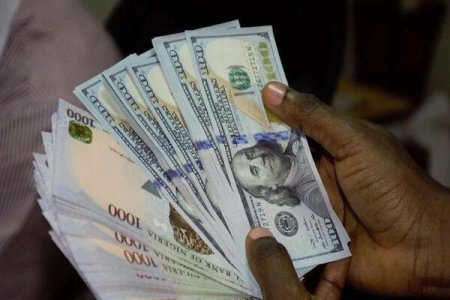
The Nigerian Naira plummeted to unprecedented depths on Monday, hitting N1,700 against the US Dollar and N2,100 against the Pound Sterling. These alarming figures mark a historic low for Nigeria's currency, painting a bleak picture of the nation's economic stability, particularly under the leadership of President Bola Tinubu.
The freefall of the Naira has been relentless, despite efforts by the Central Bank of Nigeria to stem the tide. President Tinubu, who assumed office last May, inherited a currency already on a downward trajectory. However, under his watch, the depreciation has accelerated, exacerbated by the decision to float the currency.
Since the currency was floated, the Naira has experienced a rapid devaluation, with significant consequences for the economy. In September, the Naira exchanged at a staggering N1,000 to one US Dollar on the parallel market, underscoring the failure of President Tinubu's efforts to stabilize the national currency amidst rampant inflation.
The consequences of the currency crisis are far-reaching. The Association of Nigerian Licensed Customs Agents (ANLCA) reported a decline in vehicle importation due to the weakened currency, highlighting the ripple effects on various sectors of the economy.
Recent data from Naira Rates revealed a continuous decline, with the Naira depreciating to N1,520.123 to a dollar on January 31st, compared to N1,482.75 recorded just a day earlier in the official foreign exchange market. This rapid depreciation has alarmed economists and policymakers alike, raising concerns about the government's ability to manage the economy effectively.
A report by Price Water Coopers shed light on the root causes of the currency crisis, attributing it to President Tinubu's economic policies. The decision to scrap fuel subsidies and consolidate foreign exchange windows into a single Importer and Exporter (I&E) window has led to a staggering 98% devaluation of the Naira, according to the report. While these policies may appeal to foreign investors in the long run, they have had dire short-term consequences for the Nigerian economy.
Despite mounting criticism, President Tinubu's government remains steadfast in its approach. The recent removal of petrol subsidies and the adoption of a clean float foreign exchange management system are seen as strategic moves to reduce the government's financial burden and promote a more market-driven economy. However, the efficacy of these measures in addressing the currency crisis remains uncertain.
As the Naira continues its downward spiral, the challenges facing Nigeria's economy under President Tinubu's leadership loom large. Inflation is on the rise, and the purchasing power of ordinary citizens is diminishing. The road ahead is fraught with uncertainty, requiring decisive action and careful economic management to steer the country away from the brink of financial collapse.




![Today's Naira Rate [02-05-2024]: Economic Concerns Heighten as Naira Weakens Further Against Dollar at ₦1402/$1](/data/attachments/203/203550-8457c57119a478bc5717b11aa4a694ef.jpg)